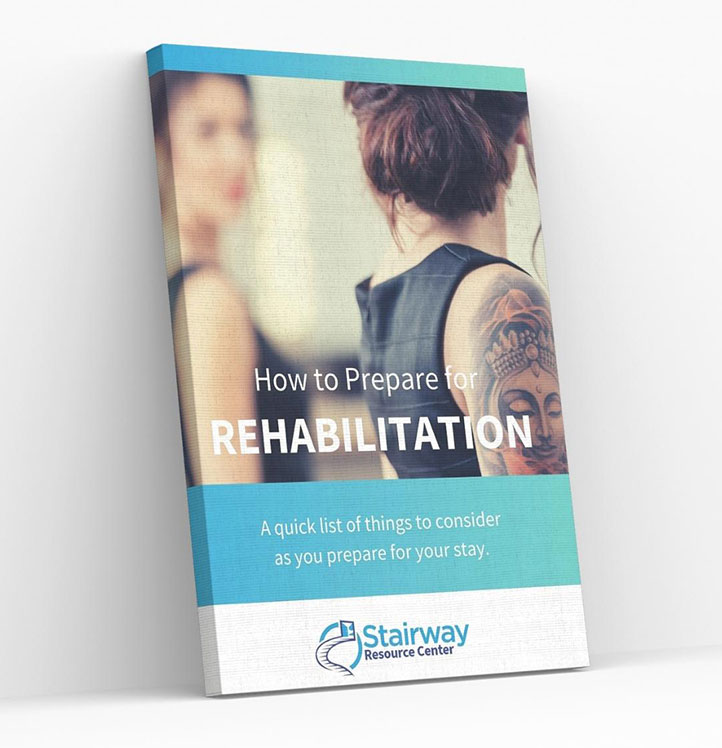We Accept Most Insurance. Please Call to Verify Yours.






![]()







At Stairway Resource Center, we believe in a comprehensive, individualized approach to therapy and addiction recovery. Located in the heart of Los Angeles, our center offers a full continuum of care designed to treat both the physical and mental health aspects of addiction. With a focus on long-term, structured recovery programs, our clinical and holistic therapies empower individuals to achieve and maintain sobriety while addressing the root causes of their substance use.
Our therapeutic services go beyond the conventional treatments of addiction recovery. We specialize in treating co-occurring mental health disorders, recognizing that addiction is often a symptom of deeper emotional and psychological struggles. Whether you’re seeking help for yourself or a loved one, our experienced team of therapists, counselors, and medical professionals are here to guide you every step of the way — helping you build a healthier, more fulfilling life free from addiction.
Therapy is a cornerstone of addiction treatment. At Stairway Resource Center, we understand that overcoming addiction requires more than just addressing the physical symptoms of substance use. True recovery comes from understanding the underlying psychological, emotional, and behavioral issues that contribute to addiction in the first place.
Through a combination of individual therapy and group therapy, we offer a personalized approach that meets the unique needs of each person. Whether you are struggling with substance use disorder (SUD), co-occurring mental health disorders, or the effects of trauma, our therapy programs are designed to help you build the emotional resilience and coping skills necessary for long-term recovery.

At Stairway Resource Center, group therapy is a foundational element of our treatment philosophy. Group therapy provides individuals with a supportive, nonjudgmental environment where they can share their experiences, listen to others, and build a sense of community. This connection with others who are going through similar struggles can be incredibly powerful, offering validation, support, and accountability.

Group therapy sessions at Stairway Resource Center are led by licensed clinicians who guide discussions on various recovery-related topics, such as:
Our group therapy programs allow individuals to explore their thoughts and feelings in a safe space while benefiting from the collective wisdom and shared experiences of the group. By fostering open communication, group therapy helps reduce the feelings of isolation and shame that often accompany addiction, allowing individuals to rebuild their confidence and sense of self-worth.

While group therapy provides communal support, individual therapy at Stairway Resource Center offers a more personalized approach. In one-on-one sessions with a licensed therapist, individuals have the opportunity to explore their personal history, emotions, and behaviors in a confidential setting. Our therapists use evidence-based modalities such as cognitive behavioral therapy (CBT), dialectical behavior therapy (DBT), and motivational interviewing (MI) to help individuals address the underlying issues contributing to their addiction.
CBT is one of the most effective tools in treating addiction because it focuses on identifying and changing negative thought patterns and behaviors that lead to substance use. In CBT sessions, individuals learn how to recognize triggers, manage cravings, and develop healthier coping mechanisms to deal with stress and emotions.
DBT focuses on emotional regulation and interpersonal skills, helping individuals manage intense emotions and self-destructive behaviors effectively. By teaching distress tolerance, DBT equips individuals to cope with overwhelming emotions without turning to substance use, supporting recovery. DBT is essential for those with co-occurring mental health disorders like anxiety, depression, or borderline personality disorder, aiding long-term recovery.
In addition to CBT and DBT, our therapists are trained in MI, a client-centered approach that helps individuals resolve any ambivalence they may have about their recovery. By helping individuals clarify their values and goals, MI fosters motivation and commitment to positive change, making it easier to overcome the obstacles to recovery.

For many individuals, unresolved trauma is at the core of their addiction. At Stairway Resource Center, we offer trauma-informed care that addresses the deep emotional wounds that often drive substance use. Our therapists are trained to create a safe, supportive environment where individuals can process traumatic experiences and begin to heal from the effects of trauma.
Eye movement desensitization and reprocessing (EMDR) is one of the specialized therapies we offer to help individuals process and reframe traumatic memories. EMDR allows individuals to confront and integrate these memories without being overwhelmed by them, reducing the emotional intensity of the trauma and diminishing its power to trigger addictive behaviors.
Through trauma-informed therapy, we help individuals rebuild their sense of safety and trust, allowing them to develop healthier coping mechanisms and relationships that support long-term recovery.

At Stairway Resource Center, we believe in a holistic approach to addiction recovery, one that addresses the whole person — mind, body, and spirit. In addition to traditional therapies like CBT and DBT, we offer a range of holistic therapies designed to complement the clinical aspects of treatment and promote overall well-being.
Our holistic therapy offerings include:
These therapies help individuals reconnect with their bodies and minds, offering alternative ways to process emotions, manage stress, and find balance in recovery.

Addiction affects not only the individual but also their loved ones. At Stairway Resource Center, we recognize the importance of involving families in the recovery process. Family therapy provides a structured environment where family members can address their concerns, learn how to support their loved one in recovery, and begin to heal from the damage addiction has caused in their relationships.
Family therapy sessions focus on improving communication, setting healthy boundaries, and resolving conflicts that may have contributed to the addiction. By fostering healthier family dynamics, family therapy helps build a stronger support system for the individual in recovery and promotes healing for the entire family unit.

At Stairway Resource Center, we understand that maintaining sobriety requires more than just completing a treatment program — it requires ongoing support and the development of effective relapse prevention strategies. Our relapse prevention program is designed to help individuals identify their triggers, develop coping skills, and build a support network that will help them stay on track in their recovery journey.
Relapse prevention therapy focuses on:
By equipping individuals with the tools they need to navigate life’s challenges without turning to substances, our relapse prevention program helps ensure long-term success in recovery.
At Stairway Resource Center, we are committed to providing compassionate, evidence-based care that addresses the unique needs of each individual. Our approach to addiction treatment is rooted in the belief that recovery is possible for everyone, no matter how difficult the journey may seem.
With our combination of individual and group therapy, trauma-informed care, holistic therapies, and relapse prevention, we offer a comprehensive treatment program that promotes healing on every level — physical, emotional, and spiritual. Dedicated therapists, counselors, and medical professionals provide the support and tools needed for lasting recovery.
Therapy programs in Los Angeles are designed to address all aspects of addiction, including physical, emotional, and psychological needs. Compassionate clinical psychologists, mental health counselors, and psychotherapists offer evidence-based care in a safe, confidential environment. Whether through individual therapy, group therapy, or a combination of both, our goal is to support you every step of the way toward a healthier, addiction-free life.
At Stairway Resource Center, we understand that recovery is a journey, and we are committed to walking that path with you. Whether you’re seeking help for substance use disorder, co-occurring mental health conditions, or the lasting effects of trauma, our compassionate team is here to provide the support and care you need. With a personalized approach to therapy, trauma-informed care, and holistic healing options, we’ll help you build the skills for long-term sobriety and emotional wellness. Take the first step toward a healthier, more fulfilling life — contact Stairway Resource Center today at (888) 450-2701 to learn more about our programs and begin your recovery journey.


This free guide contains a list of things to consider as you prepare for your stay.
We’re here to provide help and support along the way!